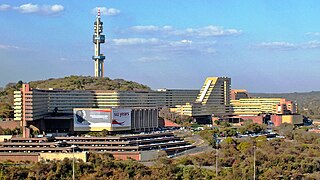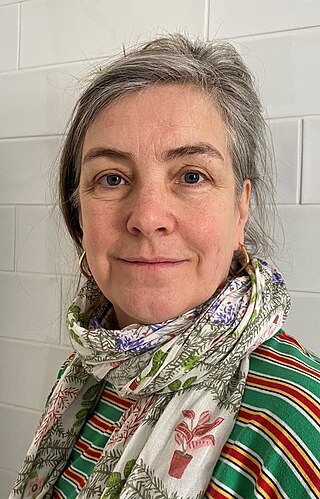Related Research Articles
The City and Guilds of London Institute is an educational organisation in the United Kingdom. Founded on 11 November 1878 by the City of London and 16 livery companies – to develop a national system of technical education, the institute has been operating under royal charter (RC117), granted by Queen Victoria, since 1900. The Prince of Wales, later King Edward VII, was appointed the first president of the institute.
A diploma mill is a company or organization that claims to be a higher education institution but provides illegitimate academic degrees and diplomas for a fee. The degrees can be fabricated, falsified, or misrepresented. These degrees may claim to give credit for relevant life experience, but should not be confused with legitimate prior learning assessment programs. They may also claim to evaluate work history or require submission of a thesis or dissertation for evaluation to give an appearance of authenticity. Diploma mills are frequently supported by accreditation mills, set up for the purpose of providing an appearance of authenticity. The term may also be used pejoratively to describe an accredited institution with low academic admission standards and a low job placement rate. An individual may or may not be aware that the degree they have obtained is not wholly legitimate. In either case, legal issues can arise if the qualification is used in resumes.
A graduate diploma is generally a qualification taken after completion of a first degree, although the level of study varies in different countries from being at the same level as the final year of a bachelor's degree to being at a level between a master's degree and a doctorate. In some countries the graduate diploma and postgraduate diploma are synonymous, while in others the postgraduate diploma is a higher qualification.

The Council for National Academic Awards (CNAA) was the national degree-awarding authority in the United Kingdom from 1965 until its dissolution on 20 April 1993.
A Bachelor of Medicine, Bachelor of Surgery is an undergraduate medical degree awarded by medical schools in countries that follow the tradition of the United Kingdom. The historical degree nomenclature states that they are two separate undergraduate degrees. In practice, however, they are usually combined as one and conferred together, and may also be awarded at graduate-level medical schools. It usually takes five to six years to complete this degree.

Norwich University of the Arts is a public university in Norwich, Norfolk, United Kingdom that specialises in art, design and media. It was founded as Norwich School of Design in 1845 and has a long history of arts education. It gained full university status in 2013.


WCG is the managing body that administers several colleges of further education in the English West Midlands, namely in the counties of Warwickshire and Worcestershire. Its most recent acquisition concerned its August 2016 merger with South Worcestershire College of which the two campuses then reverted to their historical names of Evesham College in Evesham and Malvern Hills College in Great Malvern. The merger makes it the largest group of further and adult education institutions in the country and one of the five colleges in the United Kingdom empowered by the Privy Council with the authority to award Foundation Degrees
A Diploma of Higher Education (DipHE) is a higher education qualification in the United Kingdom and Sweden.
A Bachelor of Architecture (BArch) is a bachelor's degree designed to satisfy the academic requirement of practising architecture around the world.

Falmouth University is a specialist public university for the creative industries based in Falmouth and Penryn, Cornwall, England. Founded as Falmouth School of Art in 1902, it was later known as Falmouth College of Art and Design and then Falmouth College of Arts until 2012, when the university college was officially granted full university status by the Privy Council.
The Certificate in TESOL (CertTESOL) is an accredited professional qualification awarded in the teaching of "English for speakers of other languages" (ESOL) by Trinity College London. It is a commonly taken teaching qualification in the field of English language learning and teaching (ELT). It is one of various TEFL qualifications available. The Trinity CertTESOL is regulated by the UK's Office of Qualifications and Examinations Regulation (Ofqual) which regulates qualifications, examinations and assessments in England.

University of Advancing Technology (UAT) is a private for-profit university in Tempe, Arizona. Founded in 1983, UAT integrates technology into its general education requirements. The institution offers core classes, as well as deep sets of courses in each major. Each student is required to complete a "Student Innovation Project" and internship to graduate.

Emergency medical personnel in the United Kingdom are people engaged in the provision of emergency medical services. This includes paramedics, emergency medical technicians and emergency care assistants. 'Paramedic' is a protected title, strictly regulated by the Health and Care Professions Council, although there is tendency for the public to use this term when referring to any member of ambulance staff.

The A-level is a subject-based qualification conferred as part of the General Certificate of Education, as well as a school leaving qualification offered by the educational bodies in the United Kingdom and the educational authorities of British Crown dependencies to students completing secondary or pre-university education. They were introduced in England and Wales in 1951 to replace the Higher School Certificate. The A-level permits students to have potential access to university if their grade is of satisfactory quality.

The University of South Africa (UNISA) is the largest university system in South Africa by enrollment. It attracts a third of all higher education students in South Africa. Through various colleges and affiliates, UNISA has over 400,000 students, including international students from 130 countries worldwide, making it one of the world's mega universities and the only such university in Africa.
In the UK education sector, there are a wide range of qualification types offered by the United Kingdom awarding bodies. Qualifications range in size and type, can be academic, vocational or skills-related, and are grouped together into different levels of difficulty. In England, Wales and Northern Ireland, qualifications are divided into Higher Education qualifications, which are on the Framework for Higher Education Qualifications (FHEQ) and are awarded by bodies with degree awarding powers, and Regulated qualifications, which are on the Regulated Qualifications Framework (RQF) and are accredited by Ofqual in England, the Council for the Curriculum, Examinations and Assessment in Northern Ireland and Qualifications Wales in Wales. In Scotland, qualifications are divided into Higher Education qualifications, Scottish Qualifications Authority qualifications and Scottish Vocational Qualifications/Modern Apprenticeships, which are on the Scottish Credit and Qualifications Framework (SCQF). Scottish Higher Education Qualifications are on both the SCQF and the FHEQ.

King's Business School (KBS) is the business school of King's College London located in London, the United Kingdom and is a constituent academic faculty of the university. King's College London was ranked 5th in the United Kingdom in The Complete University Guide (2023) and 12th in The Guardian's Business, Management & Marketing league table (2022). KBS is triple accredited by the AACSB, EQUIS, and AMBA.

Julia Lockheart is a British artist, academic and researcher.
The National Council for Technological Awards was a UK statutory body responsible for awarding Diplomas in Technology and Engineering undertaken in higher education colleges. It operated from 1955 to 1964 when its responsibilities devolved to the newly established Council for National Academic Awards.
References
- 1 2 3 4 "Post-war curriculum and assessment: Coldstream, Summerson, art history and complementary studies". arts.brighton.ac.uk. Retrieved 14 January 2022.
- 1 2 3 "The Structure of Art and Design Education" (PDF). dera.ioe.ac.uk. Retrieved 14 January 2022.
- ↑ "Hansard, Diplomas in Art and Design (National Council) 01 May 1961". api.parliament.uk. Retrieved 14 January 2022.
- 1 2 "The National Archive". discovery.nationalarchives.gov.uk. Retrieved 14 January 2022.
- ↑ "National Council for Diplomas in Art and Design (NCDAD), 1961-1982". mrc-catalogue.warwick.ac.uk. Retrieved 14 January 2022.